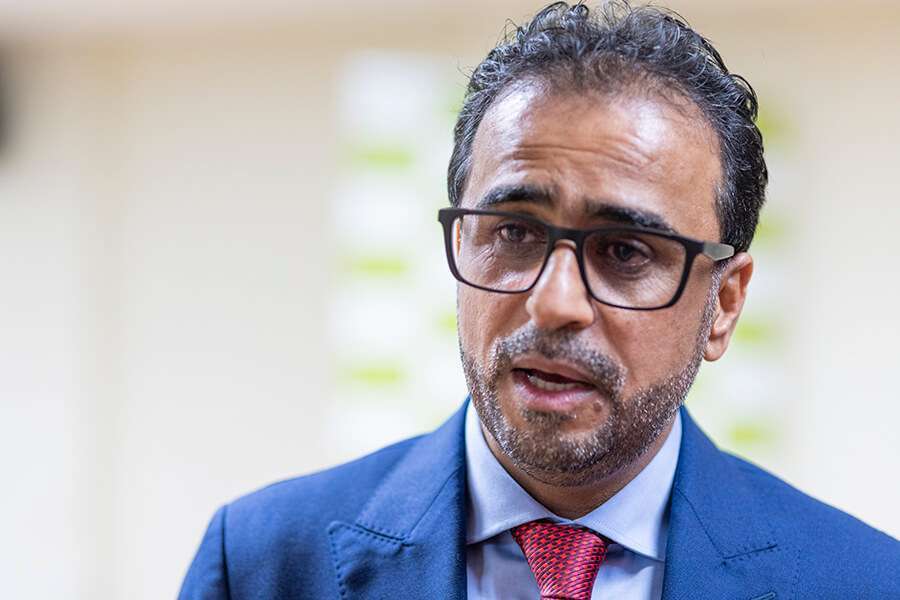Tolerance and Integration, the answers to overcome the current spiritual and cultural crisis

This Wednesday, the Tolerance and Integration lecture series, organised by the Foundation for Islamic Culture and Religious Tolerance and the San Juan del Castillo Foundation, was held online. The main theme of the interventions was: 'Education and Spirituality in Times of Crisis. Perspectives from Diversity'. The event was moderated by Dr. Alfred G. Kavanagh, President of the Board of Trustees of the Foundation for Islamic Culture and Religious Tolerance. Dr. Kavanagh thanked the audience for attending the event and said that it was a pleasure to collaborate with those who share the vision of a more just society through tolerance and integration.
The conferences were opened by Macarena Úbeda Rojo, coordinator of Reception and Interreligious Space at the San Juan del Castillo Foundation. In her speech, Úbeda stressed how the current situation has totally changed our way of seeing and being in the world. "It is very important to promote interfaith dialogue and to reflect on how education can favour learning in times of crisis," said the coordinator of Reception and Interreligious Space at the San Juan del Castillo Foundation.
The first conference, entitled: 'The Co-Cultural Challenge', was given by Fernando Miguel Vidal, Doctor in Sociology, Professor of Psychology and Social Work in the Faculty of Human and Social Sciences at the Universidad Pontificia de Comillas. In it, Vidal referred to the concept of co-culturality as a necessary step in the integration of communities within societies. "History has taught us that communities that do not have a common cultural project end up dividing and failing", explained the professor at the Pontifical University. Vidal analysed the main problems of today's societies in terms of culture. Firstly, he stated that secularism excludes religion, multiculturalism does not integrate, but rather institutionalises parallel worlds and that interculturality is essential but insufficient.

"Co-culturality is a proposal to create culture together from the uniqueness of one's own roots," said the Doctor of Sociology. As an example of co-culturality, he spoke of the importance of Mudejar art. On the other hand, Vidal maintains that only an inclusive laicism favours co-cultural creation. This process, according to the Professor of Psychology and Social Work, goes beyond the coexistence of cultures or the understanding of them, it is about different cultures being able to express on their own terms, what is common to all; expanding an idea of equality, which does not encourage standardisation, but the idea that we are all equally unique. "We are faced with the challenge of overcoming the cultural paradigm with all the wisdom and heritage of humanity, thinking in terms of collaborative and co-creative democracy," Vidal said.
The seminar continued with a speech by Alicia Guidonet, anthropologist and coordinator of the Interreligious Space at Fundació Migra Studium, Jesuit Migrant Service. In her speech, Guidonet insisted on the idea of education in diversity as a support for moments of crisis. "To educate for me is to lead, to guide, to provide sufficient tools so that the person, as a unique being, can unfold his or her being and talents. Educating in diversity is the need to cultivate people's inner space," the anthropologist explained. On the other hand, she also placed special emphasis on the difference between expressing interiority through exteriority and interiority and superficiality; assuring that the dialogue between interiority and exteriority is essential: "When my interior is expressed in the realm of superficiality, something fails. When there is a fluid space between interior and exterior there is coherence as being".
Guidonet also spoke of the importance of spirituality in recognizing oneself and the other. To explain this, the anthropologist referred to the moment of crisis, a situation in which the number of questions increases. "Many times it is the questions of others that help us, I like very much to transfer that image to religious dialogue, how to sustain crises from that shit shared with others, that is why education in diversity is so important," said Guidonet.
Finally, after a round of questions in which the challenge of societies to achieve this co-culturality was stressed and the example of the United States was discussed. On the other hand, the need to go deeper into ourselves and others to avoid stereotypes and silence as a common point between different cultures was also of special importance.
Finally, the director general of the Foundation for Islamic Culture and Religious Tolerance, Jumaa al-Kaabi, closed the event by thanking the participants for their commitment to promoting tolerance and integration. He thus concluded the second meeting in a cycle of three conferences entitled 'Tolerance and Integration', organised by the Foundation for Islamic Culture and Religious Tolerance and the San Juan del Castillo Foundation. These two institutions are united by the promotion of tolerance and interreligious dialogue. The result of this link was the collaboration agreement signed in 2020, thanks to which various actions will be carried out in favour of peace, tolerance and the promotion of inter-religious dialogue.










